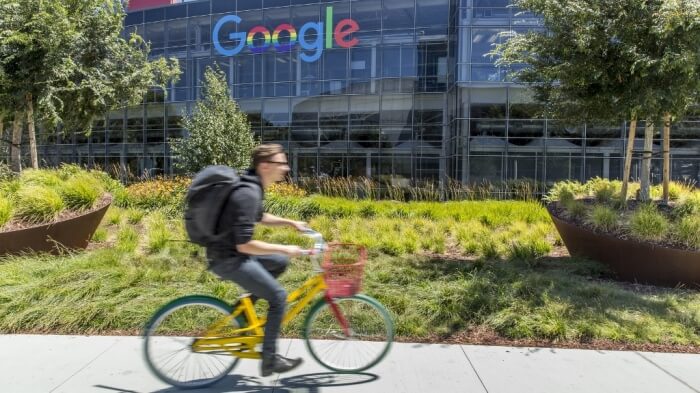SEO is a dark art and big companies have millions to spend on dominating search engines. Here's an exhaustive list of ways to level the playing field.
How Your Business Can Compete With Big Brands Online
SEO is a dark art and big companies have millions to spend on dominating search engines. Here's an exhaustive list of ways to level the playing field.

Life can be tough for the small business. Bigger competitors have more products, a wider range of services, and a seemingly infinite marketing budget. They have a flashy website, a well-equipped social media ‘team’, and they benefit from extensive online coverage.
Yes, it can seem like the odds are stacked against you, but you needn’t be envious of the big boys. There’s a reason you started your business, and just because your competitors are doing it bigger, it doesn't mean they’re doing it better. They were small once too, and everyone starts somewhere.
Rather than aiming for blanket domination, focus your attention locally and promote your business to customers in your area right when they’re looking for your type of business.
Enter: Local SEO
As a small business, Local SEO should be an essential part of your marketing activity. With Google leaning on personalised search results and with smartphone use being at an all time high , “on the go” searches aren’t going away.
In order to make sure you’re getting the most from Local SEO, try focussing on the following areas to maximise your visibility in local searches:
Utilise NAP Citations
Name, Address and Phone Number citations are the first and most important step in your journey to Local SEO domination.
These won’t always result in a link to your site, but they are references to your company. Search engines use citations to help validate your business and so lots of consistent mentions of either full NAP information, or in part, allows for bigger scope for cross referencing.
Citations on well-known, established portals increases the likelihood that your information will be indexed and will be viewed as more authoritative by search engines.
If you’ve been around awhile, run a citation audit using Moz Local , WhiteSpark or Yext to check where you’re referenced and to see if any of your details need amending, updating or removing, and to ensure there are no duplicates.
If your site’s brand new, or if you’re happy your audit's clear, you need to make sure you’re present on the following important local listing platforms:
Google+
Google Maps
Google My Business
Better Business Bureau
Bing Places
Yahoo Local
Apple Maps
Amazon Local
Yelp
Tellows.com
Once they’re ticked off the list, you can start to build more citations. This is an ongoing process, so don’t rush to be everywhere immediately. Use Brightlocal to compare your citations with others and make a list you can chip away at over time.
Generate Reviews
‘Google research shows that having reviews on your Google listing will lead to a 140% bump in requests for driving directions and a 360% increase in visits to your website from Google.’ - via synup.com
If you’ve made a sale, or performed a service, follow it up with an invitation to leave a review. This works beyond local SEO and actually gives your business more credibility.
Positive reviews are obviously preferred, but if something didn’t go to plan, a negative review with a good response shows your audience how good your customer service is.
You can reach out to your mailing list, or put a request out on social media inviting your customers to share their experiences. If they’ve physically visited your store, you could include a card with their purchase that includes instructions for leaving a review online. Be patient, though. The reviews may not roll in right away.
Don’t Neglect the Tech
Get those local terms in your copy. If your keyword isn’t on the page, you’re going to struggle to show in search for it. Including your address on your contact page is obviously a good start, but include it in your site’s title tags, your header tags, Alt text and the url if it’s appropriate. Careful not to get spammy.
For the more advanced, visit Schema.org for help in boosting your online visibility with schema markup.
‘Schema markup is code (semantic vocabulary) that you put on your website to help the search engines return more informative results for users.’ - via kissmetrics.com
Depending on the markup you’ve used, and there are hundreds, you’re effectively expanding your SERP entry to provide people with more information before they even visit your site.
Markup can be used for articles, reviews, events, products and more. Using Google’s Structured Data Markup Helper , you’ll generate HTML to be included on key pages, which will pick out key elements on that page - for many, this will be a job for your web developer.
Work with other local businesses
Help search engines understand that your business is relevant to your area by having other local businesses link to you. Linkbuilding has gotten to be a bit of a dirty word in SEO, but if you’re using branded terms for anchor text, and your link profile grows steadily (rather than shooting up overnight, which looks unnatural) it’ll help your business’ credibility.
Think of it as all helping one another out to spread the word. Rather than a page of links to local businesses, the links could come from coverage of an event you worked on with other businesses, or a collaboration between several businesses’ services.
Geo-targeted PPC
… and social media advertising are effective in attracting a large amount of traffic to your site in a short amount of time. Local SEO is great, but it takes time, while biddable media is almost immediate and fully controllable.
Budget can be increased, scaled back, or even switched off whenever necessary.
Conduct some keyword research to reveal the local terms people might be using to search for what you offer. Use this insight to build and refine a list of suitable phrases and then create your campaigns around them.
Facebook advertising will allow you to target a very specific audience, and there are updates due for Google Maps, which will allow for a new dimension in local search ads through to connect your digital marketing and the real world.
Good things come those who work
There’s no quick-fix when it comes to matching larger brands online. Local SEO takes time and Localised PPC takes money, but with due care and enough effort, your business will benefit from the local exposure.
Collect reviews, build links and fine-tune your citations and consider investing in a digital marketing agency if your To Do list is already too long.
Thanks for signing up to Minutehack alerts.
Brilliant editorials heading your way soon.
Okay, Thanks!




